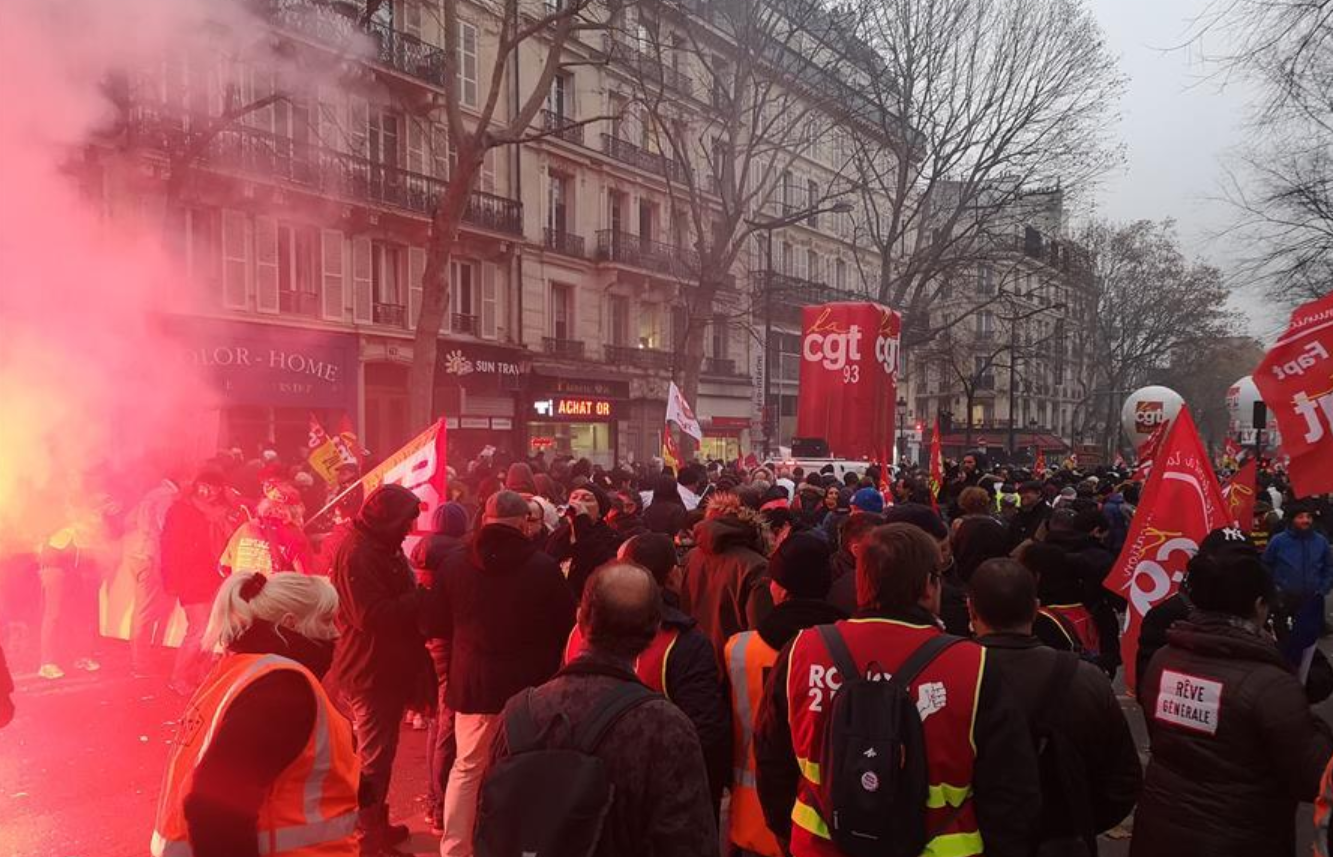Protesters take part in a strike in Paris, France, Dec. 5, 2019. Train and metro stations are deserted, schools closed and many aircrafts grounded across French cities on Thursday as the country’s labor unions staged a nationwide strike to force President Emmanuel Macron to abandon the pension reform. (Xinhua/Han Qian)
Train and metro stations are deserted, schools closed and many aircrafts grounded across French cities on Thursday as the country’s labor unions staged a nationwide strike to force President Emmanuel Macron to abandon the pension reform.
In an open-ended social action likely to paralyse France, world’s top tourism destination during Christmas holidays, transport networks are heavily disrupted, forcing millions of workers to switch to bikes and e-scooters, use car-sharing services or work from home.
Only one in 10 high-speed trains is operational and only 10 percent of regional trains are running. Around half of Eurostar frequencies are cancelled and only one in three Thalys trains between Paris and Brussels operates, according to state-run railway operator SNCF.
Most of the Paris metro lines are shut and 20 percent of scheduled flights are cancelled.
“Transport networks will be very disrupted today like tomorrow and probably this weekend,” warned Minister of State for Transport Jean-Baptiste Djebbari.
“We think that the strike can still last a few days,” he told RTL radio.
Truck drivers, police, firefighters, teachers and emergency rooms staff are all expected to join unions strike, posing a major test of Macron’s political craftiness to push through reforms under pressure.
An Ebale Opinion poll released on Wednesday showed 58 percent of people approved the protest against the reform, up by 5 percentage points from a survey conducted on Nov. 27.
“People have realized that their purchasing power will go down. Everyone will lose so everyone is mobilized. Macron’s regime has made the choice of this confrontation,” said Jean-Luc Melenchon, leader of hard-left party “France Unbowed”.
In one of his major campaign promises, Macron proposes to merge the variety of 42 different pension set-ups for different professions into a universal system.
The new single regime would use points so that each euro paid in would give the same retirement benefits no matter what sector pensioners worked in.
The government argued that the reform is needed to bring costly pension system into balance. Critics say that would effectively force people to work longer, in particular public sector workers who have been allowed to retire earlier often because of hard working conditions.
Assuring unions that his government would listen and negotiate, the French head of state remained “determined” and stressed that “these reforms must be carried out in listening and consultation…” his office told BMTV news channel.
Widely seen as a taboo, pension overhaul had been failed during the previous governments.
In 1995, SNCF unions staged three weeks of strikes that paralysed the country and forced then Prime Minister Alain Juppe to drop retirement reform plan and a program of welfare cutbacks and resign.
The country’s largest movement since 1968 forced then President Jacques Chirac to abandon the reform and dissolve the National Assembly.
Post time: Dec-07-2019
